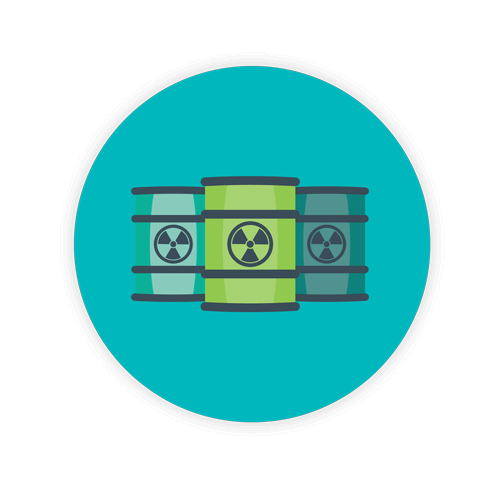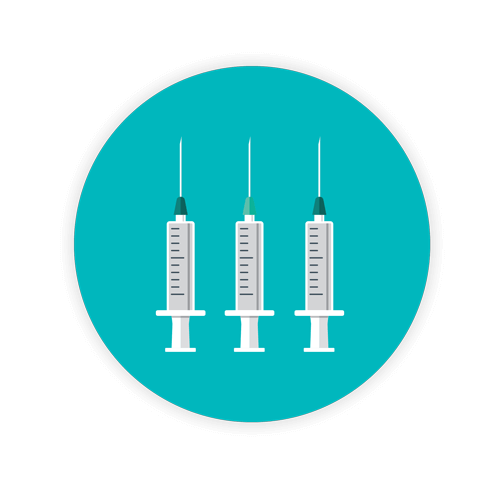Guide to North Carolina Medical Waste Regulations

Anyone who works at any type of healthcare facility in the state of North Carolina needs to be aware of medical waste regulations. Whether you work in a dental office, a pharmacy, a veterinary clinic, an outpatient surgical center or hospital, North Carolina’s medical waste rules cover numerous medical waste guidelines in regard to handling, packaging, storage, transportation, and ultimately, treatment and disposal.
Daniels Health understands that wading through dozens of pages of state and federal rules when it comes to handling and disposal of medical waste can be daunting. However, it doesn’t have to be, if you know where to look. In the state of North Carolina, healthcare waste management and disposal falls under the purview of North Carolina’s Department of Environment and the Natural Resources Division of Waste Management.
Definitions matter
Medical waste generators note that definitions and classifications of medical waste generated by a healthcare facility are not always exactly the same. As an example, North Carolina is a state that classifies waste into four primary categories:
- Hazardous waste
- Medical waste
- Regulated medical waste
- Municipal solid waste

In North Carolina, hazardous waste management follows the definitions of the federal Resource Conservation and Recovery Act (RCRA) terminology, meaning waste that contains certain types of toxic chemicals or has certain characteristics that pose a “significant” risk to the environment as well as human health. In North Carolina, some types of chemotherapy waste are deemed hazardous waste. Hazardous waste regulations in the state are enforced by the North Carolina Department of Environment and Natural Resources.
Medical waste, in this state, doesn’t include hazardous waste, household waste, or radioactive waste, but defines any type of solid waste generated throughout the diagnosis, treatment, or immunization of humans or animals. The definition also includes solid waste accumulated due to testing or production of biologicals.
Regulated medical waste in the state of North Carolina is a subcategory of medical waste that, like hazardous wastes, poses a “significant” health risk to human populations in regard to transmission of infectious diseases. Wording is important here. In this state, regulated medical waste is defined as “blood and body fluids in individual containers in volumes greater than 20 mL, microbiological waste, and pathological waste that has not been treated pursuant to specific standards.”
Additional definitions of North Carolina’s Administrative Code regulations can be found in Section .1200 – Medical Waste Management (found in NCAC 15A and 13B. Even more specific, North Carolina defines blood and body fluids as “liquid blood, serum, plasma, other blood products, emulsified human tissue, spinal fluids, and pleural and peritoneal fluids. Dialysates are not blood or body fluids under this definition.”
To cover your bases even further, be aware of North Carolina’s Article 9, Part One definitions of solid waste management (section 130A – 290. Definitions) to ensure understanding. Without understanding the basic foundations of the definitions found in any state’s administrative code in regard to terminology, mistakes can happen.
Daniels Health knows this is especially true when it comes to handling and storage of sharps. In North Carolina, the administrative code defines sharps as “needles, syringes with attached needles, capillary tubes, slides, and cover slips, and scalpel blades.”
North Carolina government website pages offers a wide range of materials that break down information regarding institutionally generated medical waste in print, infographics, and PDF files. When it comes to compliance, there’s no excuse for not understanding the rules. Penalties and fines applicable to each incident of noncompliance can cost a facility tens of thousands of dollars per day, per incident.
Bagging and tagging
In North Carolina, sharps are required to be tagged, packaged, and properly tagged or labeled and rigid, puncture-proof containers. North Carolina’s Department of Environmental Quality rules don’t require treatment of sharps before disposal, but leak-proof, rigid, and upright, puncture-resistant containers are mandatory. Only with local approval are sharps allowed to become part of the municipal solid waste stream headed to local landfills.
Regulated medical waste can be disposed of three ways, but all regulated medical waste must be treated prior to disposal. For example, pathological waste and/or the carcasses of an infected animal must be incinerated or dealt with through another method approved by the state of North Carolina. Any cultures or components containing cultures of known pathogens must be rendered safe through autoclave, microwave, or disinfectant chemicals or other approved methods.
In this state, even blood-soaked medical waste that includes dressings, bandages, disposable instruments, use gloves, and tubing are not included in the state’s definition of regulated medical waste. Per North Carolina’s Department of Environmental Quality, such waste can be disposed of without prior treatment in general solid waste streams but only with local government approval.
Did you know?
A few key things to remember about North Carolina, which again, are not applicable to all states in the US:
- North Carolina doesn’t require that sharps be incinerated prior to disposal
- Medical waste management in North Carolina is not regulated by the US EPA
- Any transportation of regulated medical waste in North Carolina must comply with the US Department of Transportation and North Carolina waste management rules
- North Carolina doesn’t mandate cradle-to-grave tracking of medical waste (although Daniels Health certainly recommends it!)
- Remember that medical wastes in North Carolina are under the authority of North Carolina’s medical waste rules and the solid waste section of those rules.
The importance of segregation and on-site management of wastes
Daniels Health focuses and emphasizes the importance of waste segregation for every medical waste generator. That means taking the ‘cradle-to-grave’ approach. Healthcare facilities commonly spend thousands of dollars treating medical waste that isn’t defined as “regulated”, increasing costs related to resources. Minimizing the amount of waste that must be transported off-site is essential for maximizing budgets as well as minimizing the amount of waste heading to local landfills. The Department of Environmental Quality recommends that facilities check with city or county authorities for local approval prior to disposal.
In North Carolina, a number of resources and links are available from the Division of Environmental Quality, including a PowerPoint presentation regarding medical waste in N.C. The presentation also encourages reduction and reusing supplies when possible, which can save some facilities an estimated cost saving of $60,000 annually, and reduce approximately 50,000 pounds of estimated waste annually.
Daniels Health is focused on not only helping medical facilities and medical waste generators maintain compliance, but to save money through proper waste segregation methodologies and whenever possible, management of hazardous waste on site.
For more information on how Daniels Health can help your facility stay on top of ever-changing guidelines and regulations, contact us today. Alternatively find out more about our North Carolina operations and service capabilities on our North Carolina service page here.
Let's Talk!
Your time is valuable, and we don’t want to play hard to get. You can either phone us directly on the details listed on our contact page, or feel free to fill out this short form and one of our team members will get back to you as quickly as possible.
